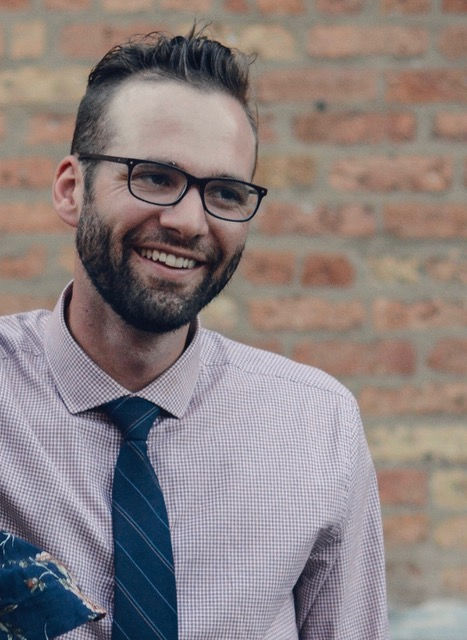
“I’ve also come across at least two memorable submissions written in the form of self-help guides for unprecedented life events, like escaping a wildfire or coming out of the closet late in life. They were both fast-paced, ambitious, and refreshing.”
Tell us a little bit about yourself. Where are you from and what do you do when you’re not reading for NER?
My family owns a large farm that I’ve worked on virtually my whole life, aside from the four years in Coe College, where I studied writing. When I’m not reading for NER, I am on the farm, where I do a lot of my writing actually. I used to carry around little Moleskines that, by the end of the year, were raggedy and soiled and full of barely legible notes. Now, I use my cellphone and actually do most of my NER reading on there as well. The twenty-first century is a strange time.
What made you decide to be a reader for NER?
Selfish reasons. I wanted to see the tricks other writers use to get their pieces noticed by a reputable publication like NER. I read for Coe Review during undergrad a decade ago and have wanted to join a new team ever since then, but I knew my take on short fiction was not up to snuff. That is, it took ten years of writing and reading on my own, away from the workshop setting, for me to get comfortable critiquing other people’s work in any meaningful way. It’s still daunting at times, because every batch of submissions is filled with excellent writing. Honestly, I never thought I’d be chosen as a reader. I mean, it’s New England Review. Why would they want some bumpkin like me?
Have you ever read a submission that later got selected for publication?
I am relatively new to NER at this juncture and have read 167 stories so far, only one of which has been accepted: “Offerings” by Samantha Xiao Cody (forthcoming 42.4). She creates an unforgettable mother-daughter bond in this piece, turning the relationship on its ear and highlighting the Chinese-American experience in unique and heartbreaking ways.
What is your reading process like? What do you look for in a submission?
I look for a far-flung setting first. If a story takes place solely in the kitchen, there better be something other than hotdogs on the stovetop. There is no process for me as a reader. I read every story from beginning to end, even those I know won’t make the cut. I want to know what makes a story work. I am a selfish reader, as I said, and I know that even a story that isn’t ready for publication may have a nugget that inspires me.
Of the pieces you’ve read at NER, which was your favorite or most memorable to you personally?
Scott Onak submitted a story about the design and construction of the Golden Gate Bridge. It was such a sweeping piece of historical fiction that spanned decades and detailed some complicated and devastating relationships between the men who worked on the project. The setting was so visceral. It seemed like a labor of love that Onak obviously slaved over, much like the men who worked on the bridge. Though the editors decided that the piece was too long for publication (over 30 pages), I really hope to see a revised version or a new piece from Onak in the future. I’ve also come across at least two memorable submissions written in the form of self-help guides for unprecedented life events, like escaping a wildfire or coming out of the closet late in life. They were both fast-paced, ambitious, and refreshing.
How has reading for NER influenced your own writing/creative pursuits?
I’ve learned to cut to the chase as a writer. I’ve whittled a few of my stories down from twenty pages to five. I even got one down to 1,000 words. This is not to say that long stories don’t catch my eye, as I mentioned in my previous answer. The thing is, I got to page 30 in that story and it felt like page two. That’s a tricky thing to pull off. There’s really no way to learn how to do that.
What do you read for pleasure? Is there something you’re reading now that you would recommend?
Funny, I am actually reading Anna Karenina for the first time. So much for the whole brevity thing. As for more modern, short-story writers, I love David Means, Wells Tower, Jenny Offill, and Thomas McGuane.
NER‘s staff readers, all volunteers, play an essential role in our editorial process and in our mission to discover new voices in contemporary literature. A full list of staff readers is available on our masthead.